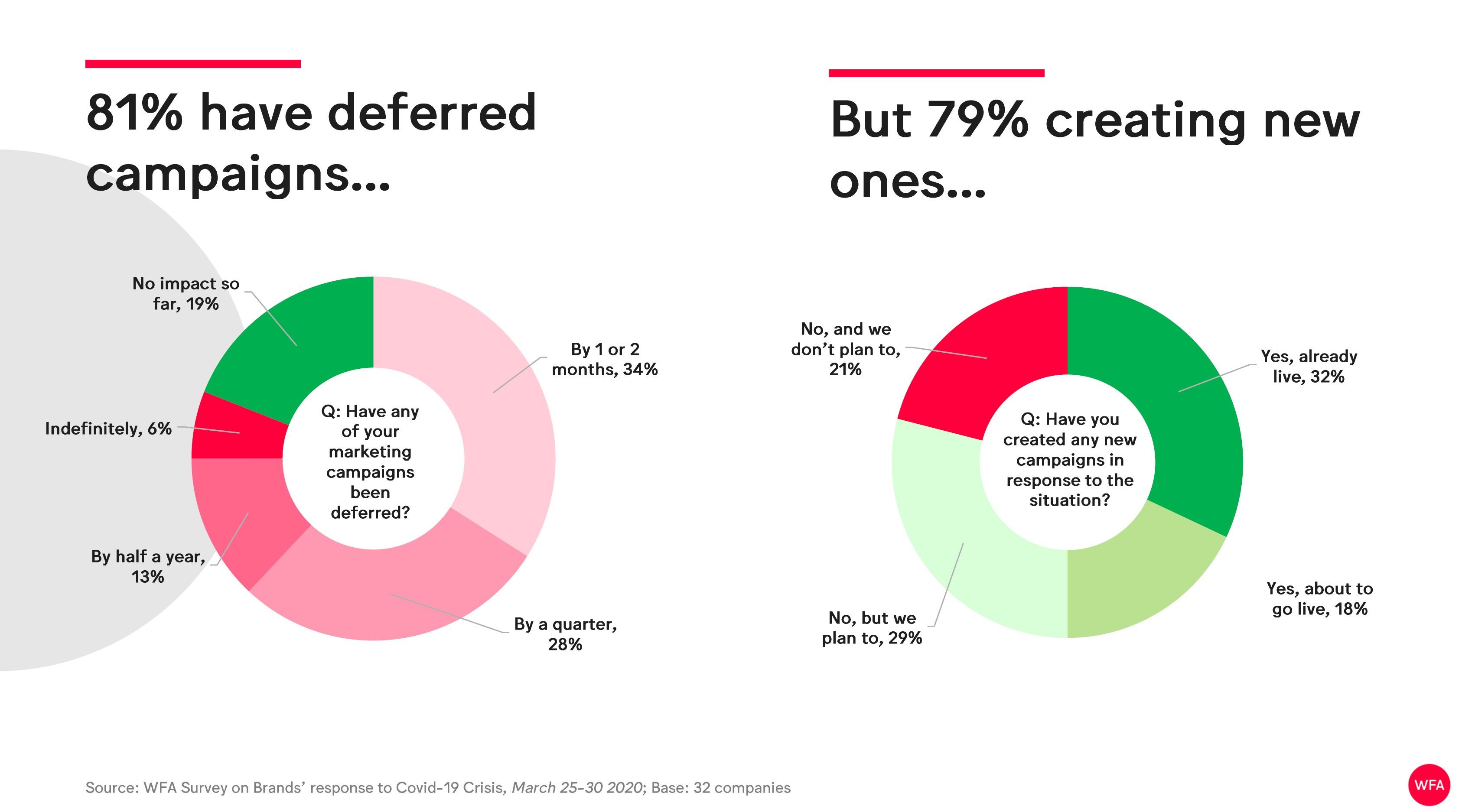Get analysis, insight & opinions from the world's top marketers.
Sign up to our newsletter.
Avoiding content about Coronavirus is having a major impact on media companies. Advertisers should be wary of the impact their decisions are having. Gabrielle Robitaille, WFA's Digital Policy Manager, explains.
Advertisers have been taking understandable measures to curtail the negative impact that the crisis could have on their brands and the trust and respect that they have developed with their consumers.
Often the first response has been to pull back from advertising around news stories related to the outbreak. Key word blacklists prevent their ads from appearing adjacent to COVID-19 content.
This approach, however, is not without consequences and could cause significant economic harm to the media sector; publishers have claimed that the UK news industry could face losses of £50 million as a result.
The irony is that while publishers worldwide are struggling to make ad revenue from their news stories, they are simultaneously experiencing record numbers of readers seeking to keep up to date and informed.
Reports have shown that audiences from top news sites worldwide are up by 25-50% since the beginning of the year, suggesting that people are actually paying more attention to ads placed next to COVID-19 related content.
This action comes alongside other decisions that are having a financial impact. The WFA’s own data shows that 81% of members are deferring planned campaigns as a result of the Coronavirus crisis.
While 79% said they were creating new messages that respond to the impact of the crisis on the people who use their products and services, the result of these changes is a drop in annual marketing budgets.

To support the media industry at this time, brands and governments are having to rethink their approaches.
In the UK, the national advertiser association (ISBA) has partnered up with the Internet Advertising Bureau and the Institute of Practitioners in Advertising to issue guidance on how advertisers should responsibly review content-verification strategies.
This advice has been shared by UK Culture Secretary Oliver Dowden in a letter to 100 major UK brands urging an end to “ad-blocking” on online news articles about the pandemic. Moreover, recent studies have in fact shown that content related to COVID-19 isn’t necessarily harmful to brand safety; a study carried out by GumGum found that a majority (62%) of nearly three million web pages containing COVID-19 related keyword were classified as “safe”.
A number of national advertiser associations are also developing proposals, or working closely with governments, on tax relief packages in their respective markets.
Some governments have already put measures in place offering tax relief for the advertising and media sectors (including in Australia, Italy and Denmark), while in other markets, national advertiser associations are calling for similar measures to be implemented (Belgium, France, Ireland and Spain).
Some countries have sought to find new sources of revenue for publishers. The Australian government recently announced mandatory measures from July 2020 which will require digital platforms such as Google and Facebook to pay for news content. Ireland has become the latest country to call on Google and Facebook to pay newspapers for their content.
Some platforms are also doing their bit to help; Google recently launched a global Journalism Emergency Relief Fund to support small- and medium-sized news organisations producing original news for local communications. Facebook has decided to invest $100 million to support the news industry during the crisis, while Twitter has distributed one million dollars to the Committee to Protect Journalists and the International Women’s Media Foundation.
As the pandemic continues across the globe, it remains imperative that the advertising and media industry remain united; that we continue to share good practice standards, that we improve the online user experience and, most importantly, that we set a precedent for how we jointly navigate emerging crises.